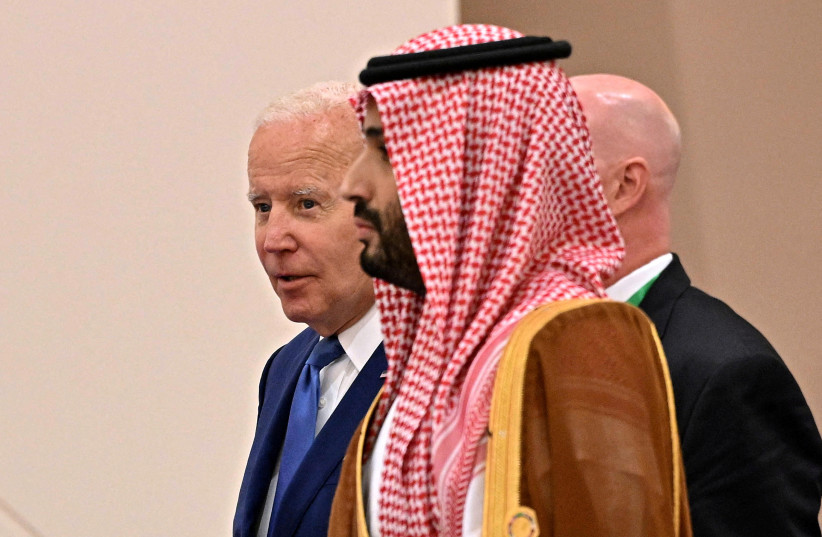In a revealing survey by the Jerusalem Center for Foreign Affairs (JCFA), some 64% of the Israeli public stands against establishing a Palestinian state as part of the normalization process with Saudi Arabia. The full report will be unveiled at the 13th Annual Jerusalem Post Conference in New York next week. In collaboration with the Panels Politics research institute, led by Menachem Lazar, the survey focuses on the stance of both Jewish and Arab Israelis on this critical political issue.
The opposition to a Palestinian state shows significant political divides: 84% of right-wing voters, 54% of centrist voters, and 24% of left-wing voters oppose the move. Interestingly, a similar percentage of left-wing voters support the establishment of a Palestinian state without conditions.
Dr. Dan Diker, president of the JCFA, will present the survey results at the conference and discuss the dangers posed to Israel by the establishment of a Palestinian state with former Hamas member Mosab Hassan Yousef, also known as The Green Prince, especially in light of the strategic and security implications following the events of October 7.
Biden administration
(Yousef, whose father is Hamas co-founder Sheikh Hassan Yousef, defected from the terrorist group to Israel in 1997 and was an undercover agent for Israel’s Shin Bet Security Service until he moved to the United States in 2007.)
The Hamas-led war, supported by Iran and impacting Israel since October 7, has intensified the existential threat to the Jewish state, pitting the nation against Hamas, Iran, Hezbollah, and other fronts in the Middle East.

Amid fierce fighting in Gaza, other diplomatic and political fronts have also heated up, highlighting issues such as the battle against terrorist organizations operating within civilian populations in hospitals, UNRWA schools, and residential buildings.
In Judea and Samaria for example, a significant challenge emerged in the form of extensive public support among Palestinians for the October 7 massacre. The Palestinian Authority’s failure to condemn the massacre, participation of the al-Aqsa Martyrs Brigades, and the continued incitement against Israel have strained Israeli-PA relations.
Washington’s involvement is therefore crucial. The Biden administration seeks to promote a regional deal that includes ending the war, demanding Hamas return the hostages, and reinstating PA forces in Gaza. This initiative is part of a broader expectation from Washington and Europe to establish Palestinian statehood.
The American proposal has led to a crisis between Washington and Jerusalem, as well as within Israel, particularly concerning the return of PA forces to Gaza. The Biden administration’s stance, that a Palestinian state is the solution to the Israeli-Palestinian conflict, faces unprecedented opposition from the Knesset and Israeli leadership.
“The Israeli government and Knesset have rejected the idea of a Palestinian state as a solution, especially as a reward for Palestinian terror or as a post-Hamas solution,” said Dr. Diker.
“Public opinion polls now reflect the Israeli public’s understanding of the issue’s significance after October 7,” he said. “Given the Biden administration’s policy, it is crucial to convey this message to both Israel’s elected officials and decision-makers in the White House.”
The survey revealed that the October 7 massacre caused a third of respondents who previously believed a Palestinian state could be established under certain conditions, to change their mind – now opposing it entirely.
Among respondents aged 60 and above, support for a Palestinian state under recognition of Israel and demilitarization conditions fell from 44% to 32%. A similar decline was noted among those with an academic education (29% to 20%) and high-income individuals (33% to 20%).
Opposition was exceptionally high among younger respondents (70% of ages 18-29), individuals with lower education (72%), and traditional, religious, and ultra-Orthodox respondents (74%, 88%, and 91% respectively). Secular respondents showed a 54% opposition rate.
